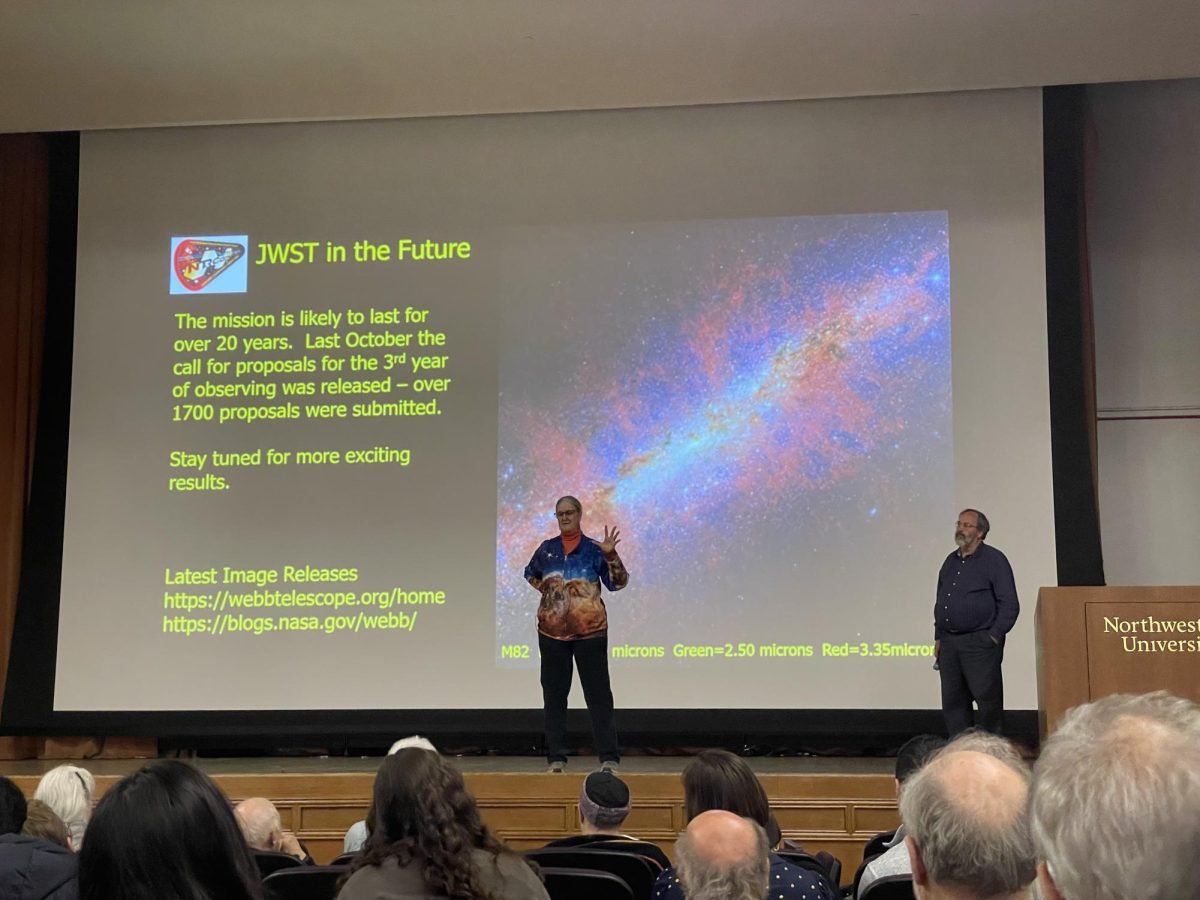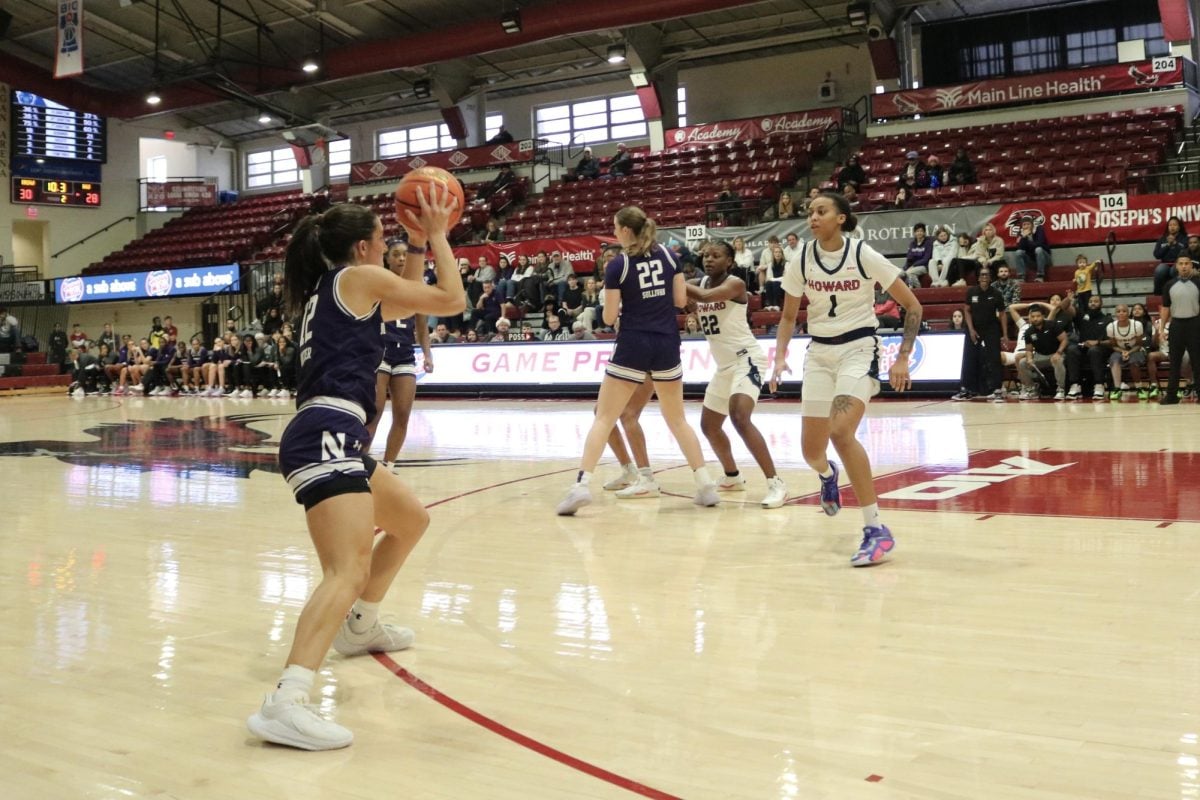Marcia Rieke, the lead investigator for the near-infrared camera on the James Webb Space Telescope, gave a talk on the new telescope at the Technological Institute on Friday.
Rieke highlighted the JWST’s capabilities and contributions to the scientific community. The $10 billion telescope, launched into space on Dec. 25, 2021, has led to the discovery of new galaxies, she said.
Rieke’s presentation marked the third and final lecture in the 2024 Heilborn Lecture Series. The annual lecture series, hosted by the Department of Physics and Astronomy since 2000, aims to educate the general public on developments in the field.
Communication sophomore Aashna Rai, who attended the lecture, said although she knows little about astronomy, she was intrigued to learn from experts in different fields.
“I forget that there’s so much opportunity to learn and engage with things that I’m curious about,” Rai said. “It’s good to take advantage of where you are and be a learner.”
Rieke also spoke on JWST’s infrared camera capabilities, which enable the telescope to see through dust better than visible light. She also discussed redshift, a phenomenon in which light shifts to a redder part of the wavelength spectrum with a lower frequency. Redshift can be used to measure a galaxy’s distance from Earth.
Rieke compared pictures of galaxies JWST and the famous Hubble Space Telescope captured side-by-side to show the increased capabilities of the new telescope. This power enables JWST to see galaxies that Hubble cannot, she said.
Rieke said it may be feasible to use JWST to measure atmospheric compositions of other planets. These measurements may lead to discoveries of Earth-like planets, knowledge that Rieke predicts will affect public lives.
“I think if we could show that there is an Earth-like planet somewhere out in the galaxy, from a philosophical standpoint, that would really have a big impact on the man in the street,” Rieke said.
Rieke said she thinks the public was very receptive to the success of JWST because people were looking for good news after the COVID-19 pandemic, and in turn became excited about an innovation created with the sole intention of new discoveries and learning more about space.
Evanston resident and attendee Patricia Bieze said she was excited to hear an in-person explanation of the power of the telescope after reading information online. She added that there is great importance in being a life-long learner.
“If I can come, and I’m not that far off from 100, then I think it’s pretty important,” Bieze said. “How else can you experience life in the present?”
Email: [email protected]


















